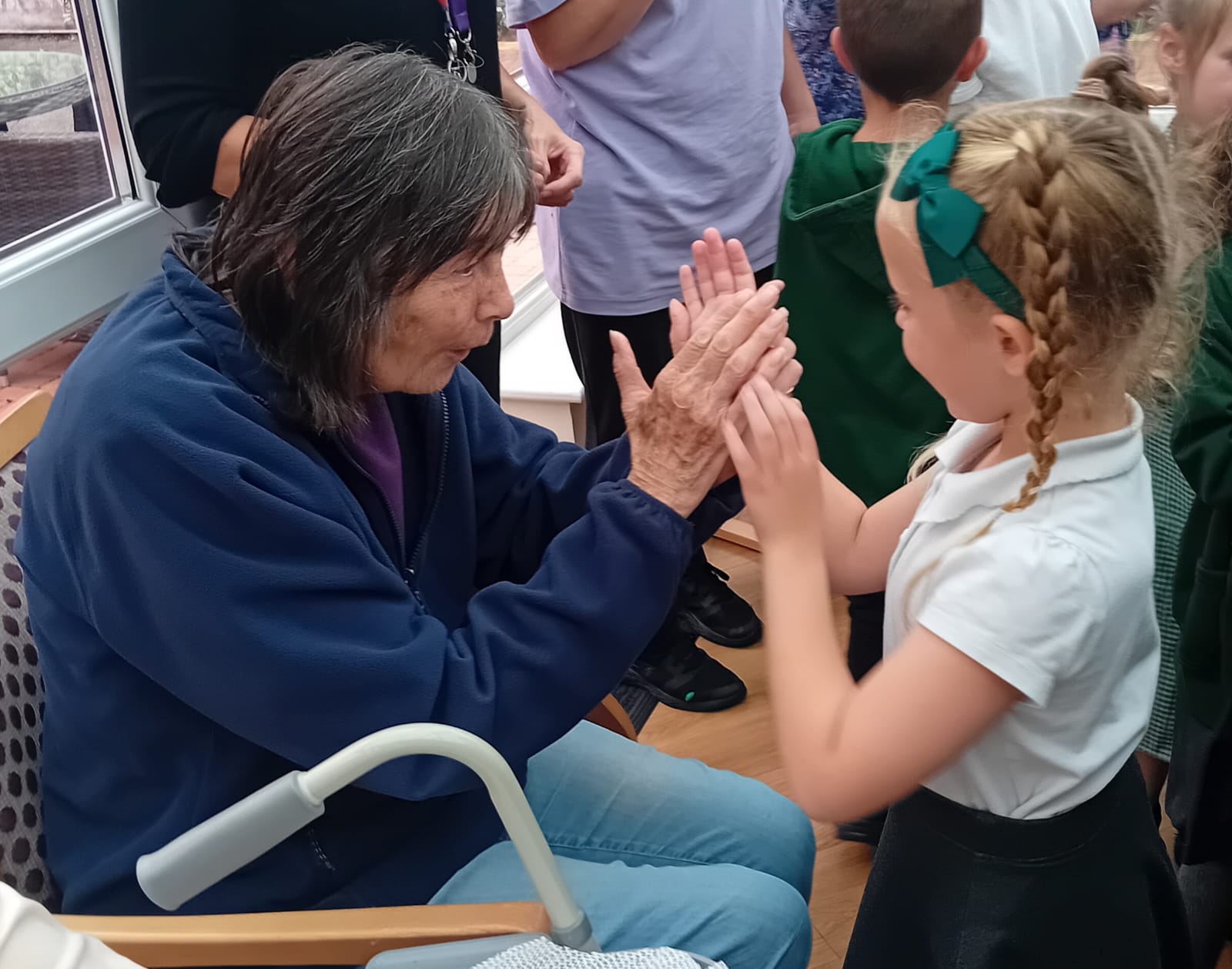Guest Blog: Intergenerational England presents “Unravelling The Threads of Loneliness”
Here at the Tackling Loneliness Hub, we believe in the power of community and conversation. We’re dedicated to sharing insights and stories that can help bridge the gap between isolation and connection.
Through our content, we want to explore the multi-faceted nature of loneliness, spotlight the fantastic organisations on the hub, and highlight the innovative approaches and real-life experiences that inspire hope and action.
Introduction
Today’s blog has been written by Intergenerational England (IE), a pioneering charitable organisation dedicated to uniting public, voluntary, and private sectors in the fight against ageism.
As advocates for systemic change, Intergenerational England’s (IE) mission is to build stronger, more inclusive communities that thrive across generations, now and in the future. Their approach addresses vital sectors, including the NHS, housing, social care, transport, education, and both governmental and non-governmental bodies, ensuring that intergenerational principles are woven into the fabric of society.
If you or your organisation would like to submit a blog – please contact the Community Manager.
Intergenerational England has released free infographics from their research on how connections across age groups can reduce loneliness and foster respect. These accesible visuals are designed to inspire policymakers, community leaders, and organisations to promote generational inclusivity. The research highlights that intergenerational interactions break down stereotypes, build mutual care, and strengthen societal unity, emphasising the value of every individual, regardless of age.
Explore their blog below, “Unravelling The Threads of Loneliness: An Intergenerational Approach,” to delve deeper into the research and its findings.

Solitude in Nature: A quiet moment of reflection and loneliness beneath the shade of a tree.
Unravelling The Threads of Loneliness: An Intergenerational Approach
Loneliness – Not an Exclusive Club
In 2022, 49.63% of adults (25.99 million people) in the UK reported feeling lonely occasionally, sometimes, often or always according to the Campaign to End Loneliness which defines loneliness as. . .
Loneliness a Definition
‘A subjective, unwelcome feeling of lack or loss of companionship. It happens when there is a mismatch between the quantity and quality of the social relationships that we have, and those that we want’
Addressing the issues of loneliness and human connection needs a holistic approach. We know that loneliness is a complex emotion that transcends age, gender, and cultural boundaries and has a profound impact on mental, emotional, and physical well-being.
If we are to help tackle loneliness, we first need to change our prejudiced notions of who it ‘typically’ affects and instead acknowledge that it is not an exclusive club but can affect anyone of any age.
Drawing insights from the Jo Cox Foundation’s, Campaign to End Loneliness, as well as reports from the Co-op and the British Red Cross, we recognise the pressing need for an innovative and a holistic approach. By adopting an intergenerational ethos and shifting the current stereotype we can help combat loneliness and foster a more inclusive and cohesive society.
For this kind of shift, it is vital that we collectively acknowledge the universality of loneliness and its invasion on individuals across the life course, across all backgrounds and communities. We must break down siloed interpretations recognising the wider determinants of health so we can better support and address change, holistically.
What we know:
- Loneliness Knows No Age: Universal Experiences
Loneliness does not discriminate; it affects people of all ages, from children starting at a new school to teenagers navigating adolescence, young adults forging their career paths, and elderly individuals living alone. As the Jo Cox Foundation points out, understanding this universal aspect of loneliness is vital to address the issue effectively. - Beyond Isolation: Wider Determinants of Health
Loneliness is not just a product of individual circumstances or personality traits; it’s intertwined with wider determinants of health. Social, economic, and environmental factors play a significant role in exacerbating or alleviating loneliness. This insight, as discussed in the Co-Op and British Red Cross article, reinforces the need for a holistic approach to tackle loneliness. - Health Implications of Loneliness
Beyond the emotional toll, statistics reveal that loneliness can increase the risk of early mortality by a staggering 26% (Holt-Lunstad, 2015). - Furthermore, researchers at Tulane have found that loneliness may be a more significant risk factor for heart disease in diabetes patients than a poor diet, smoking, lack of exercise, or depression. These health implications underscore the urgency of addressing loneliness holistically.
The Power of Intergenerational Connection

Bridging Generations: A heartwarming connection between an elderly person and a young child through a playful hand-clapping game.
The “Intergenerational Approach” is a deliberate and thoughtful strategy that harnesses the connections between and among people across the life course. It recognises the value of diverse experiences and fosters meaningful interactions that transcend age boundaries. Intergenerational power works to link sectors and professionals, as well as people, to ensure holistic approaches to tackle loneliness are at the forefront of agendas. Adopting an Intergenerational Paradigm can actively challenge and break down stereotypes and prejudices that tend to be associated with age.
By showcasing that people of different generations can relate, connect, and learn from one another, these interactions become powerful catalysts for promoting inclusivity. We know that building mutual exchange of care and companionship can go a long way in nurturing a profound sense of unity and belonging, thus dismantling the barriers of isolation. It goes beyond promoting reintegration into society; but, highlighting the intrinsic worth of every individual, regardless of their age.
Intergenerational England is committed to working with sector leaders to address loneliness, encouraging an intergenerational lens and ethos. By addressing these pressing issues holistically, we can make a positive impact on the lives of individuals and contribute to building a more inclusive, connected, and resilient society. This commitment to intergenerational connections holds the promise of creating a brighter future where loneliness is mitigated, and communities are strengthened by the power of shared experiences and meaningful interactions that transcend age boundaries.





Responses